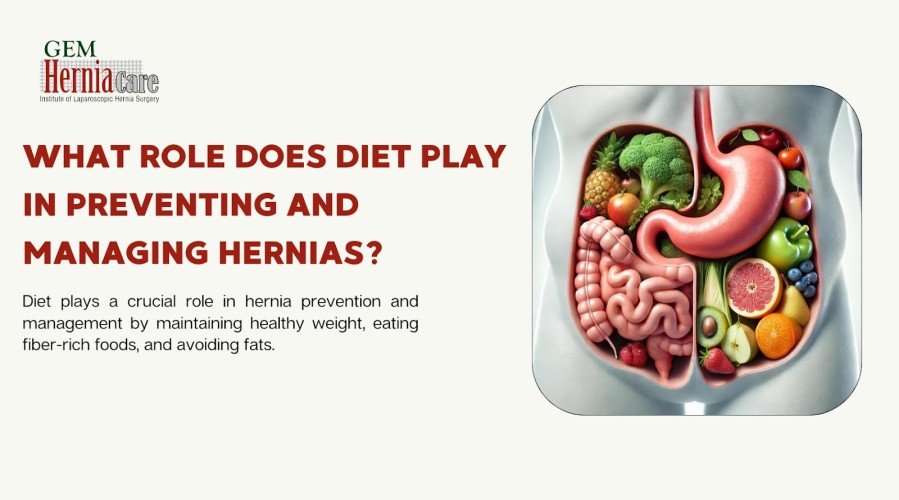Learn effective solutions for digestive problems with expert tips to improve gut health, reduce discomfort, and maintain a healthy digestive system.
What Role Does Diet Play in Preventing and Managing Hernias

What Role Does Diet Play in Preventing and Managing Hernias
Hernias, though common, can lead to discomfort and sometimes serious health complications. An essential but often overlooked aspect of hernia management and prevention is diet. By understanding how what we eat affects our body’s ability to prevent and cope with hernias, we can take proactive steps towards maintaining our health.
Understanding Hernias and Their Causes
A hernia occurs when an internal part of the body pushes through a weakness in the muscle or surrounding tissue wall. Hernias most commonly occur in the abdomen but can also appear in the upper thigh, belly button, and groin areas. Factors contributing to the risk of hernias include genetics, heavy lifting, obesity, and poor nutrition.
Nutritional Strategies to Prevent Hernias
Adopting a healthy diet is pivotal in managing body weight and reducing abdominal pressure, which in turn helps prevent hernias. Here’s how you can adjust your eating habits to help prevent hernias:
Maintain a Healthy Weight
Keeping your body weight in a healthy range is crucial. Obesity increases the strain and pressure on your abdominal muscles, which can lead to hernia development.
Fiber-Rich Foods
Incorporate plenty of fruits, vegetables, whole grains, and legumes into your diet. High-fiber foods help prevent constipation, which in turn reduces the strain during bowel movements, a common cause of hernia exacerbation.
Foods to Avoid
Just as some foods can aid in preventing hernias, others might increase the risk or worsen existing conditions. Here are some foods to limit or avoid:
- High-Fat Foods: Greasy, fatty foods can cause bloating and discomfort, increasing abdominal pressure.
- Acidic Foods: Those suffering from hiatal hernias should avoid acidic foods like tomatoes and citrus fruits as they can trigger heartburn and acid reflux.
Managing Hernias with a Proper Diet
If you already have a hernia, dietary management can be a vital component of your treatment strategy. Here are nutritional tips that can help:
Eat Smaller, More Frequent Meals
Instead of three large meals, opt for smaller, more frequent meals throughout the day. This can prevent the stomach from becoming too full, thereby reducing pressure on your hernia.
Stay Hydrated
Drinking plenty of water ensures smooth digestion and prevents constipation, which can cause undue strain and pain.
Schedule an Appointment
If you are dealing with a hernia or have concerns about your risk factors, it's wise to seek professional medical advice. At GEM Hospital, our specialists are ready to help you with personalized care plans tailored to your dietary needs and health conditions. Schedule an appointment today to explore how you can manage or prevent hernias through effective dietary strategies.
By focusing on a balanced diet and avoiding foods that exacerbate hernia symptoms, you can significantly manage your condition and improve your overall well-being.
Blogs & Article
Explore current research trends in digestive health, including new treatments, advanced diagnostics, and innovations improving gut health and patient care.
Discover common digestive health myths and the real facts. Learn simple tips to improve gut health and maintain better digestion for a healthier life.


